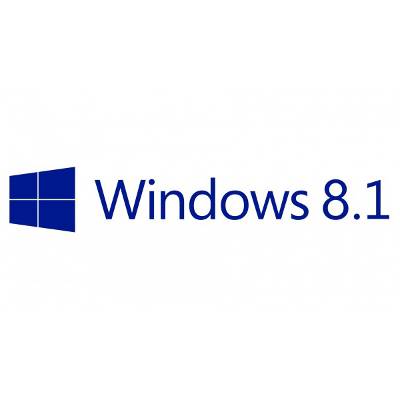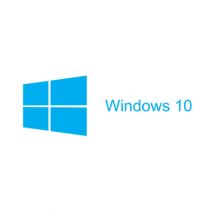Have any question?
Call (409) 861-4450
Call (409) 861-4450
Every so often, it helps to reflect for a moment on the purpose of your business, which is—with almost no exceptions—to deliver a good or service to your customers/clients. As such, every improvement you make to your technology should yield dividends for this base, even if the improvement is internal.
Let’s talk about how this might take shape and how we can help you facilitate it.
It’s easy to skimp here and there when you run a business. After all, it isn’t cheap, and you have to make difficult decisions every day for where you’re prioritizing your spending. One area where you can’t scrimp on a substandard investment is your technology; especially an old computer that has broken down over and over again. If you’re not careful, that broken computer could be holding you back and costing you profit.
If you want your devices to keep running smoothly, including utility and security, you need to ensure they are updated. Updates sometimes cause problems beyond what they solve, however. What looks like a routine patch or update could impact your important applications, and if you’re not careful, you could potentially cause a downtime scenario simply by being proactive with your updates.
Synergy. Paradigm shift. Disruption. There are so many buzzwords saturating modern business jargon nowadays, including and especially “digital transformation.”
Unfortunately, “digital transformation” sounds big and, worse, expensive… especially for our small and medium-sized business neighbors. We wanted to step in and assure you that this is not the case and that any business can benefit from it, provided it is approached correctly and mindfully.
Do you have that one friend who's still clinging to their cracked, ancient smartphone? You know the one: it's painfully slow, the battery dies in two hours, and it can't run half the apps you use. Now, imagine if an entire company operated like that, with every piece of its technology. It sounds like a comedy of errors, but for many businesses, it’s a silent disaster waiting to happen.
The end of Windows 10 support is closer than you think. On October 14, 2025, Microsoft will officially stop providing free security updates, non-security updates, and assisted support for Windows 10. For businesses, this isn't just a minor inconvenience—it's a critical security and operational risk that demands immediate attention.
It feels good to use tools you’re familiar with, but there comes a time when old tools start to hold you back. You might start to see unexpected costs that only surface over time. Let’s take a look at how you can know when it’s time to update your business’ tech and some of the hidden costs associated with not updating it.
Windows 11 seems to be rapidly approaching, so now is the perfect time to discuss Windows upgrades and upcoming end-of-life scenarios, including Windows 8.1, which is slated to expire in 2023. You might be wondering if you have the hardware to handle this upgrade, and that’s a valid question, but what does the end-of-life scenario for Windows 8.1 really look like for your business? Let’s take a look.
No matter how hard some organizations may try, the technology solutions that a business leverages simply aren’t meant to last forever. You may have noticed that some of your systems are less effective than they once were, and that your competition seems to be playing with a different set of rules. Sounds like it’s high time you implemented a few upgrades.
A business’ IT solutions aren’t the kind of thing that you can worry about once and never touch again - this is why manufacturers and developers are always sending out upgrades. However, you also need to have a strategy ready before you go to implement these upgrades. For this week’s tip, we’ll review how to put this strategy together.
Microsoft is coming to the end of its support for the wildly popular Windows 7 operating system, but that doesn’t mean that they won’t make a contingency plan for those organizations that haven’t yet made the jump to new systems. It just won’t be cheap. We’ll break down the upcoming Windows 7 end of life event, and how Microsoft is offering an olive branch of sorts to organizations that simply haven’t upgraded away from this OS.
Even if we’d like it to last forever, business technology can’t possibly do so for a number of reasons. Due to the fact that businesses and their technology are constantly upgrading and changing, it’s almost a certainty that you’ll have to upgrade your technology at some point, whether it reaches its end-of-life event or just simply becomes obsolete for your organization. In fact, failing to update your infrastructure from time to time can have serious negative side-effects for your business.
If you’ve been in business for a while, there are devices on your network that see little to no use. Even for the most frugal business, due to the fact that technology eventually winds up being arbitrary thanks to the continued development (and deployment) of more powerful solutions, there will always be situations where you have devices that do nothing but take up space. You can reduce the chances of this happening by finding the right IT for the job the first time, while sparingly implementing only IT solutions that will provide a return on your investment.
 Well, that didn't take long. Eight months ago Microsoft released Windows 8.1 and now they're sounding the alarm that users better comply and install the latest updates or lose security support from Microsoft. What makes this news peculiar is that it took 12 years for Microsoft to reach the same verdict with its popular Windows XP operating system. What gives, Microsoft?
Well, that didn't take long. Eight months ago Microsoft released Windows 8.1 and now they're sounding the alarm that users better comply and install the latest updates or lose security support from Microsoft. What makes this news peculiar is that it took 12 years for Microsoft to reach the same verdict with its popular Windows XP operating system. What gives, Microsoft?
Over the past year, Microsoft’s latest operating system, Windows 10, has gained a massive user base. With over 300 million devices worldwide running it, it’s safe to say that Windows 10 has, thus far, been a commercial success. However, the biggest reason for upgrading to Windows 10 (the free upgrade) will soon expire. So, are you going to take advantage of this, or wait until later?
 For small and medium-sized businesses, technology management can be a tricky situation. You want to ensure that your IT doesn't break your budget, but you also want to make using your technology as easy as possible for your end users. Unfortunately, for many employees, your business’s technology conduct and practices could be driving them insane.
For small and medium-sized businesses, technology management can be a tricky situation. You want to ensure that your IT doesn't break your budget, but you also want to make using your technology as easy as possible for your end users. Unfortunately, for many employees, your business’s technology conduct and practices could be driving them insane.
 When it comes to technology, upgrading is part of the package. Despite this being a well-established fact, some business owners will delay upgrading for as long as possible, while others will upgrade as soon as the latest product is released. What’s behind a company’s motivation to upgrade or not? We can better understand this by looking at a study on why businesses upgrade their operating systems.
When it comes to technology, upgrading is part of the package. Despite this being a well-established fact, some business owners will delay upgrading for as long as possible, while others will upgrade as soon as the latest product is released. What’s behind a company’s motivation to upgrade or not? We can better understand this by looking at a study on why businesses upgrade their operating systems.
 Microsoft’s most recent addition to the Windows family of operating systems, Windows 10, is full of new features, but when it comes to implementing it, many businesses are still dragging their heels. However, the primary reason for this seems to be the fact that organizations want to make sure Windows 10 won’t break their IT infrastructure. Despite this handicap, Windows 10 is still being tested on twice as many PCs as Windows 8 was following its release.
Microsoft’s most recent addition to the Windows family of operating systems, Windows 10, is full of new features, but when it comes to implementing it, many businesses are still dragging their heels. However, the primary reason for this seems to be the fact that organizations want to make sure Windows 10 won’t break their IT infrastructure. Despite this handicap, Windows 10 is still being tested on twice as many PCs as Windows 8 was following its release.
Get the Knowledge You Need to Make IT Decisions
Technology is constantly evolving, and keeping up can feel overwhelming. Whether you want to understand cybersecurity threats, explore automation, or learn how regulations like PCI DSS impact your business, we’ve made it easy to access clear, straightforward insights on key IT topics.
Learn more about what NetWorthy Systems can do for your business.
NetWorthy Systems
701 W. Division Ave Suite 100
Orange, Texas 77630